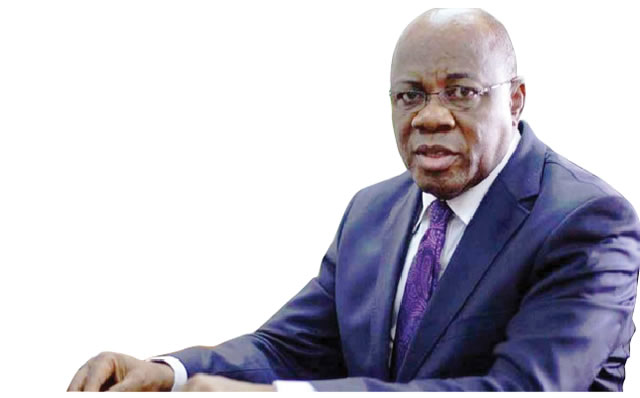
In an attempt to legally prove his stance that the Economic and Financial Crimes Commission has been allegedly breaking the rule of law, especially with the manner it prosecutes matters relating to states of the Federation, the former President of the Nigerian Bar Association, Dr Olisa Agbakoba, SAN, has said he is heading to court.
Agbakoba said he would be praying the court for a declaration on the exact scope of powers of the commission, especially in relation to states of the Federation, while maintaining that the EFCC must not in the fight against corruption undermine the rule of law.
He quoted a very recent decision, Dr. Joseph Nwobike, SAN v The Federal Republic of Nigeria FRN SC/CR/161/2020, in which the Supreme Court drastically limited the scope of powers of the EFCC, as it recognised that the EFCC, being very powerful could not be allowed to run amok.
The Senior Advocate of Nigeria spoke in a statement he released on Tuesday evening, titled, “The Scope of Powers of the EFCC Will Be Tested By The Courts.”
The statement read, “Concerned that the EFCC often exceeds its powers in the investigation and prosecution of alleged offenders of our criminal laws, I held a media press conference to express my concerns, which I do occasionally on several national issues. I stated that I felt that the EFCC often but not all the time, I must concede, exceeded its powers in what it considered to be its public duty, in the war against corruption in Nigeria.
“The EFCC issued a response stating that I was wrong to take the views that it sometimes acted outside the scope of its powers vested by the EFCC Act. The EFCC referred to some cases, but I would say that in a very recent decision, Dr. Joseph Nwobike SAN v The Federal Republic of Nigeria FRN SC/CR/161/2020, the Supreme Court drastically limited the scope of powers of the EFCC, as it recognised that the EFCC, being very powerful, could not be allowed to run amok.
“I am not a court, neither is the EFCC. I will proceed to the court for a declaration on the exact scope of powers of the EFCC, especially in relation to states of the Federation. A declaration by a judicial authority is the most valid process to authenticate if I am right or wrong with respect to my position that the EFCC often acts contrary to the law.
“I am not in any way against the EFCC on the fight against corruption. As admitted by the EFCC, I have always supported the fight against corruption. My concern is that the EFCC, in its undoubted statutory powers to stamp out corruption in Nigeria must strictly conform to the prescriptions of the law. The EFCC must not in the fight against corruption undermine the rule of law. So, to the courts I go.”
While addressing a press conference on “The Rule of Law in Nigeria Today”, in Lagos on Sunday, Agbakoba had faulted the anti-graft agency over its recent actions against the Kogi State Government.
According to him, how a state spends its money should not be the business of the anti-graft agency. He had accused the EFCC of impunity, saying that assuming it was the Commission’s business to inquire how the state spent its money, would it still be its lawful business to investigate it?





